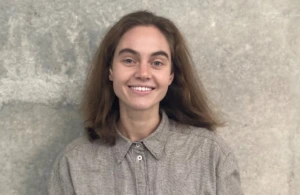Influenced by the choices of those around them
The transport sector, and passenger cars in particular, are the main source of greenhouse gases in Lithuania. Dr Vitkauskaitė-Ramanauskienė says that reducing emissions in this area could help achieve significant goals in reducing climate change, but even though public transport infrastructure is constantly improving, people still choose to travel by car. This is what sparked the KTU researcher’s curiosity – what factors determine people’s travel habits?
“During my doctoral studies, I created a model based on various behaviour change techniques, which I implemented in the form of the ‘Move Green’ initiative. With this initiative, I sought to encourage people working in Kaunas to choose public or non-motorised transport and walking instead of cars,” says the KTU researcher.
This initiative revealed that people’s travel routines are determined by external and internal factors. Among them – the continuity of bicycle paths, the availability of public transport, and attitudes, habits and perceptions of social norms.
“People are still greatly influenced by the choices of those around them – if we see our friends, neighbours or colleagues travelling by car, we begin to perceive this as a certain social norm. AS a result, we may start to think that others expect this behaviour from us, and we choose a car for all our journeys,” says Dr Vitkauskaitė-Ramanauskienė, revealing the results of her doctoral study.
Received an international award
For this research, Dr Vitkauskaitė-Ramanauskienė received an international award – the Baltic University Programme PhD Award. Young scientists from the Czech Republic, Estonia, Finland, Germany, Latvia, Poland, Slovakia, Sweden, Ukraine and Lithuania are eligible to participate in this competition.
“I am very honoured that my dissertation was recognised as the best in the field of social sciences and humanities. This award is not only symbolic – the winner receives financial support for a scientific publication or a scientific conference,” says the KTU scientist.
Doctoral studies opened the door to international recognition for Dr Vitkauskaitė-Ramanauskienė. She is convinced that the decision to enrol in doctoral studies must be well thought out, as these studies require a lot of time and effort.
“However, PhD studies bring great satisfaction as one has an opportunity to make a real societal impact. Although you put your maximum effort into doctoral studies, you get back much more,” adds Dr Vitkauskaitė-Ramanauskienė.



